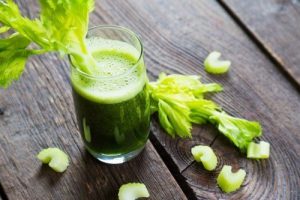"I can smell you very well."

You won't be particularly surprised that I wasn't in a hurry to wash the "scented cushion"...
Since this episode, I have often wondered how such pleasant odours are created and how some people are blessed with them.
"I can smell you well." Do we often unconsciously use our sense of smell to pre-select our favourite relationships?
What factors actually determine how we smell and are smelled?
Overview
- Natural odours
- Is human odour innate?
- Dominant and subtle odours
- The role of animal protein
- Not to be forgotten: Toxin deposits
- Excretion
- Which diet causes a pleasant odour?
- Self-exploration
- Subjective perception
- Perfumes and deodorants
- Take an interest in the perception of the other person
Natural odours

particular can stimulate us in a beguiling way and, yes, connect us with heaven.
While we humans sometimes struggle with the label "crown of creation", this rose showed me in its unique way that it can assert and express its divinity in the midst of rubble. Perhaps it even deserves the attribute "crown of creation"?
Isn't it the scent of flowers that can lift us out of a sometimes dreary everyday life? For example, when the lilacs bloom and smell again around Pentecost?
Is human odour innate?
The odour of roses, lilacs, thyme and wild garlic is obviously intrinsic to the plants, significantly influenced by the nourishing soil and climate.
On what basis do we humans develop our own odour?
milk smell very pleasant - even the contents of their nappies. But as soon as so-called "civilisation food" increasingly comes into play, this changes quickly and noticeably.
pure and innocent about it. However, this odour gradually disappears. In other words, body odour is not a constant characteristic.
Nevertheless, quite a few people assume that there is a typical, individual odour that distinguishes us humans from one another. Possibly as distinct as fingerprints, which is why sniffer dogs can be used to find people.
Perhaps there is something like an "inherited" basic odour, which is then more or less modified by nutrition?
Dominant and subtle odours

Among such oils there are in turn dominant or more discreet diffusion of their odour.
Some foods produce strong-smelling gases in a dominant way, for example, or they have an inconspicuous effect on our body odour.
The role of animal protein
It has been my experience that food preparations containing more than one type of animal protein lead to stronger odour development, which is usually perceived as rather unpleasant. E.g. meat baked with cheese, possibly with an egg on top.
culture". The human digestive system - from the teeth to the large intestine - is not naturally designed for meat consumption, as is the case with pure carnivores, for example.
Animal proteins in particular remain in our intestines for too long, so that putrefaction processes begin before everything is digested and the rest is excreted.
Not to be forgotten: Toxin deposits
It is not only putrefaction processes in the intestine that can lead to bad odour. A lack of hygiene in personal hygiene and washing clothes too infrequently also play a role. This is immediately obvious and tangible for everyone.
However, what is often overlooked is the odour of toxic substances that may have accumulated in the body over the years. I include medicines in particular. The body can rarely excrete these substances completely. Foreign, toxic substances therefore remain in the body. They are deposited somewhere, which does not prevent their own chemical odour from penetrating the skin.
How to get rid of such toxins and old waste products is discussed in more detail in the articles linked below.
Excretion
It is obvious that putrid, half-decomposed faeces smell anything but pleasant. Many people even take it for granted that their faeces always smell bad. But is that really the case?

The smell of fruit obviously dominated the smell of herbs and vegetables, which I also ate.
The distinctive odour of asparagus when urinating is widely known. And quite quickly after eating it.
I'm interested in what you've noticed so far in terms of physical odours. If you like, please share it in the comments.
Which diet causes a pleasant odour?
From the above, the answer is basically quite clear: raw food with a high fruit content. Generally also an alkalising diet. On the other hand, animal proteins tend to cause an unpleasant body odour. All the more so if they are part of a largely acid- and slag-forming diet. This includes almost all cereals, coffee, alcohol and much more.
A list of alkaline and acid-forming foods is provided by the "Centre of Health" on this page at your disposal. (only German)
For more detailed information, please read the articles in the "Nutrition" section as well as my own Nutrition recommendations.
Self-exploration
I find it helpful to take a little more of a conscious look or sniff in order to gain a more comprehensive perception of the effect of our food. We intuitively avoid bad odours on the outside, for example, because they unmistakably warn us of disharmony and "illness".
Organic waste can rot in a harmonious, fragrant way without us having to turn up our noses. But decay quickly makes us feel sick.
We can certainly understand our sense of smell as a sensitive and complex measuring instrument that we use to orientate ourselves in our surroundings. And we should also pay attention to our own odour, because a bad smell is not God-given. Rather, it is a sign of disharmony within us, and therefore also in our mind.
Subjective perception
In the course of my self-exploration, I have not only realised that our smell and taste preferences vary greatly from person to person. I also became aware of the tendency to perceive unpleasant odours in my counterpart rather than in myself.
If someone draws my attention to my bad breath, I am grateful to him or her. Especially because I hadn't noticed it myself. Only when I have this information can I start to investigate the causes. causes zu forschen.

As soon as we have become accustomed to certain conditions - in this context: odours - they seem almost normal to us. In contrast, we react very differently when we encounter new odours. The sense of smell in particular stimulates the recollection of long-forgotten experiences. It becomes clear that our perception is completely subjective - beyond "objective facts".
Perfumes and deodorants
The "scented cushion" mentioned above probably exuded pure body odour, without the aid of perfume or soap. That's how it seemed to me. But I'm no perfume expert, and perhaps it was one of those rare strokes of luck where a perfume divinely resonates with the body odour and unobtrusively crowns it.
Unfortunately - as I said - too rare. As a man, I am therefore very reserved when it comes to perfume, and I love to perceive my counterpart without an artificial odour.
Perhaps I have come across too many women who overdo it with perfume. Or they simply didn't have a lucky hand in choosing the right perfume. Among men, the derogatory term "hooker diesel" describes the - perhaps unintentional - attack on our fine noses in a less than discreet, but often unfortunately fitting way.
However, the scented cushion showed me that it can be different. In the best-case scenario, body and soul are delighted with a successful, soothing, air-enhancing perfume.
Take an interest in the perception of the other person
well or not with the help of clear pronunciation. Neutralising any body odour twice a day by soaping up completely makes our bodies too sterile for my taste. The subsequent perfuming then only results in one thing: an artificial odour.
Who wants that? Most men don't, even if they're not mutinous. I therefore strongly advocate playing with open cards and being prepared to question and change unfavourable habits.
The aim could be to create harmony in mind and body and to develop a unique fragrance.
*Or was it a fairy after all?
These articles fit the topic well:

















